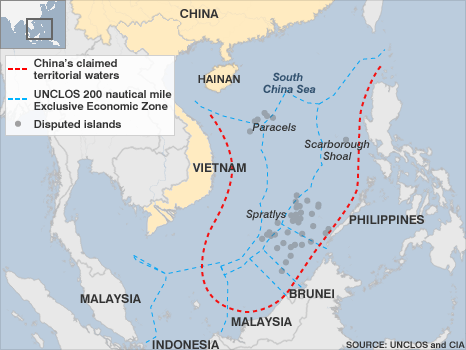At Reason, Gene Healy explains why the authorization should not be granted to President Obama by congress:
Tonight, President Obama, who rose to the presidency on the strength of stirring speeches, goes back to the well with a prime-time address urging Congress to authorize an attack on Syria.
He admits it’ll be “a heavy lift.” And how: per the Washington Post’s latest whip count in the House, even if all 170 undecideds break their way, the administration won’t be within shouting distance of a majority.
That’s good, because the Authorization for the Use of Military Force that’s on the table deserves to fail. It’s TARP with Tomahawks.
The provisions purporting to restrict the president to a brief, “limited and tailored” war are too weak to stick.
What’s more, they’re undermined by the AUMF’s gratuitous overstatement of presidential power: “The President has authority under the Constitution to use force in order to defend the national security interests of the United States.”
Wrong. The Constitution gives him the power to “repel sudden attacks” against the U.S., not launch them whenever he imagines they’ll promote our “national security interests.” That language practically invites Obama to ignore the limits and wage a wider war.
Update: In another post at Reason the current polling certainly encourages congress not to cave to the President’s wishes.
As the country debates launching airstrikes on Syria, President Barack Obama’s standing on foreign policy has taken such a hit that the latest Reason-Rupe poll finds 64 percent of Americans, including 68 percent of independents and 41 percent of Democrats, believe President Obama’s handling of foreign policy is worse than, or the same as, former President George W. Bush’s handling of foreign policy.
President Obama famously said he opposes “dumb wars.” Nearly three-quarters of Americans, 74 percent, say it would be “unwise” for the United States to launch airstrikes on Syria without the support of the United Nations or Great Britain. Just 17 percent say U.S. strikes on Syria would be wise.
When it comes to launching U.S. military action across the globe, 47 percent of Americans say the “political establishment in Washington D.C.” is more likely to favor military action than they are. A majority of independents, 57 percent, say D.C. insiders are more likely to favor war than they are. In contrast, just 17 percent of Americans say the Beltway establishment is less likely to favor military action than they are, and 30 percent say the establishment favors war about the same amount as the public.




